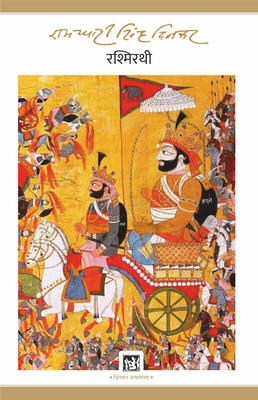Rashmi Rathi(Hindi, Book, Dinkar Ramdhari Singh)
Quick Overview
Product Price Comparison
Rashmi Rathi (Hindi), which means the one who is riding in the chariot of light, is a famous poem of the acclaimed Indian poet, Ramdhari Singh Dinkar. Summary Of The Book Rashmi Rathi (Hindi) narrates the story of Karna, one of the greatest fighters of his time, and an integral part of the famous Indian epic, the Mahabharata. His birth mother, Kunti, was granted a boon from a sage, that she might choose any deity to appear before her and bless her with a child who would bear his own divine qualities. Kunti thus gave birth to Karna. However, she was plagued by the fear of social stigma, and she set Karna in a basket afloat in the Ganges. Karna was spotted by a charioteer named Adhirath, and he raised him as his own. Karna grew up in a humble family, and was keen to study under the tutelage of Parshuram. Under the guise of a Brahmin, Karna trained under him. He soon grew to be one of DuryodhanaŌĆÖs closest friends and confidants. Duryodhana was the son of the Pandu king, and a sworn enemy of the Pandavas. He made Karna the King of Anga Desh. He fought against his blood brothers, the Pandavas, on behalf of Duryodhana during the epic battle of Kurukshetra. Battling adversities all his life, the character of Karna is depicted as one with unwavering loyalty, courage and generosity. He was hailed as one of the most magnificent characters from the Mahabharata. The 4th edition of this book was published in 2009. About Ramdhari Singh Dinkar Ramdhari Singh Dinkar, born in 1908, was an acclaimed Indian author, poet, and patriot. He has written poems and narratives like Parashuram ki Prateeksha, Krishna Ki Chaetavani, Samdheni and Kurukshetra. Born in a small village in Bihar, he was an ardent lover of the subjects of politics, history and philosophy as a student. He also studied several languages, and was immensely influenced by poets like Rabindranath Tagore, Milton and Keats. He founded the Manoranjan Library at Simariya, and his poems often reflect the stark poverty he grew up in. He was a part of the Indian Independence Movement. He has won awards like the Sahitya Akademi Award, Padma Bhushan in 1959 and the Jnanpith Award in 1972. He has also translated written works of Rabindranath Tagore from Bengali to Hindi.


